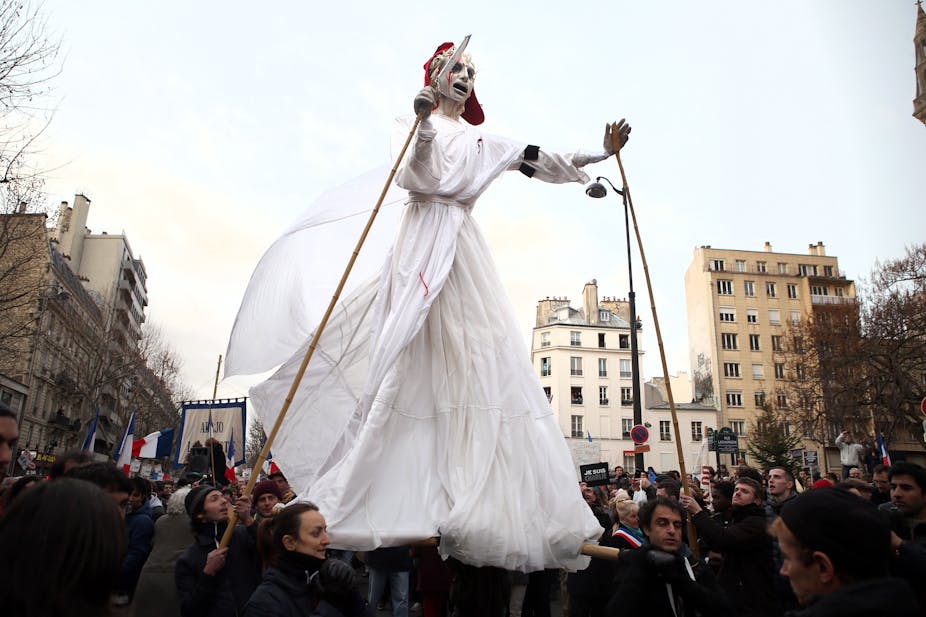France has had a long and troubled relationship with its Muslim populations. French armies faced down Muslim leaders during the expansion of the country’s empire in Africa in the 19th century. And in the 1950s and 60s, the French state was defeated by religiously-inspired independence movements in North Africa.
In recent years, France has endured interminable debates about the Islamic veil and spillover terrorism from the Algerian civil war in the 1990s. The latest incidents followed other homegrown terror attacks like those committed by Mohamed Merah in 2012.
All this suggests, on the surface, that Islam is the main problem. The three radicalised young French men who killed cartoonists, police officers and innocent hostages in a kosher supermarket in Paris seemed to be responding – in their own excruciatingly violent way – to decades of institutionalised racism, as well as France’s neo-colonial entanglements in Libya, Mali and elsewhere.
But the incessant focus on Islam runs the risk of distorting the significance of these events. For a start, only a tiny fraction of French Muslims have ever been involved in any kind of jihadi activity. France has the largest Muslim population in Europe. That population is diverse, stratified and complex.
Indeed, research suggests that French Muslims feel a higher degree of attachment to the country in which they live than almost anywhere else in the West. It is simply wrong to suggest that French Muslims find life in France intolerable. The vast majority are well-integrated, even if they suffer discrimination and socio-economic deprivation.
More fundamentally, however, a focus on Islam obscures the broader consequences of recent events. The Charlie Hebdo attacks were unquestionably tragic, but they were not mass protests or riots. They were the actions of a few isolated individuals. Inevitably, media coverage of the events in the coming weeks will dwell on the attackers’ motives but, in the long term, the most important challenge will be for the French to formulate an adequate political response.
What exactly this response will look like remains unclear. For several decades, France has been locked in an intense debate about citizenship, multiculturalism and colonial memory. This has had the benefit of opening an unprecedented and fruitful discussion about the legacy of French colonialism and a renewed interest in integration, solidarity and social exclusion.
Yet the same debate has also led to frequent calls for France to protect its heritage, customs and national identity more aggressively. This defensive nationalism is most often associated with the far-right Front National, a party that has openly warned of the Islamic “threat” to France. But the centre-left Socialist Party has faced the same difficulties as it struggles to hold on to working-class voters who want to see France clamp down on immigration.

Until now, these two competing visions of the French nation have been held in a delicate balance. The fiery and defensive nationalist rhetoric of former president Nicolas Sarkozy and Front National leader Marine Le Pen has been offset by moments of openness, such as François Hollande’s recent conciliatory speech on the benefits of welcoming immigrants.
It remains to be seen if the Paris attacks will galvanise politicians into addressing some of the country’s social problems or shatter the fragile political consensus that has allowed France to adapt to multi-culturalism.
In the end, the real risk for France is not terrorism or Islam. It is political inertia. At a time when confidence in the French political system is at an all-time low, France’s elite urgently needs to develop a more inclusive idea of citizenship. This means not just tackling anti-Semitism and Islamophobia, but also developing a much clearer vision of political, social and economic reform. It must be one that can unite a divided and fractious country. Yes, these attacks have their roots in France’s past, but they are also – and perhaps above all – about France’s future.

